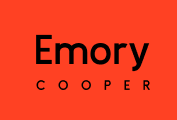Imagine standing at the turning point of your academic life and the professional world, armed with dreams but unsure of which path to take. The doubt can be paralyzing. But what if there was a roadmap, a step-by-step guide that not only illuminated the way but also gave you the confidence to march forward? That’s precisely what Emory Cooper’s The Student’s Guide to the Job Search offers—a beacon for students transitioning into the workforce. In a world where competition is fierce, and the job market evolves faster than ever, having a strategic job search plan is not just important; it’s indispensable.
The job search is not only about sending resumes into the void and hoping for the best. It’s a nuanced process that requires strategy, perseverance, and adaptability. Cooper’s book breaks down the complexity of this journey, showing how a strategic plan can elevate your efforts from mediocre to extraordinary. A strategic job search plan is your compass, aligning your aspirations with actionable goals. It bridges the gap between where you are now and where you want to be. But why is it so crucial? Because the job market is no longer about “good enough”; it demands excellence. Employers search candidates who not only meet qualifications but also demonstrate clarity, confidence, and preparation.
Before venturing into the job market, you must know who you are and what you bring to the table. Self-assessment forms the foundation of Cooper’s strategy. Understanding your strengths, skills, and career goals isn’t just helpful—it’s transformative.
Start by considering your strongest skills, the type of work environment that inspires you, and your long-term professional aspirations. Emory Cooper’s advice is straightforward: conduct a SWOT analysis—identifying your Strengths, Weaknesses, Opportunities, and Threats—to reveal your unique value proposition. This clarity enables you to focus on roles and organizations that align with your goals, sparing you the frustration of pursuing positions that don’t fit your aspirations.
Once you’ve identified your strengths and goals, it’s time to look into research. Cooper emphasizes that knowledge is power in the job market. Research industries, companies, and roles that excite you. Understand the skills in demand and the values these organizations uphold. For example, if you’re drawn to the tech industry, dive deep into its trends—remote work, AI integration, and cybersecurity advancements. Use tools like LinkedIn, Glassdoor, and industry reports to stay informed. As Cooper explains, this research not only sharpens your focus but also equips you with talking points that can set you apart in interviews.
Generic resumes and cover letters are the death knell of a job search. Cooper’s book stresses the importance of tailoring each application to the specific job. Highlight relevant experiences, use keywords from the job description, and align your achievements with the company’s mission. Consider this: instead of saying, “I led a project,” say, “I managed a team of five to complete a marketing campaign that increased client engagement by 20% within three months.” Numbers and specifics make your application memorable.
Did you know that nearly 70% of jobs are never advertised? This statistic highlights the importance of networking, a topic Cooper covers extensively. Networking is not just about meeting people; it’s about building genuine relationships that can open doors to opportunities. Leverage platforms like LinkedIn to connect with professionals in your desired field. Attend industry events, join alumni networks, and don’t underestimate the power of informational interviews. These conversations provide knowledge into roles and companies while demonstrating your initiative. As Cooper notes, “Networking isn’t about asking for a job; it’s about showcasing your potential.”
An interview is your moment to shine, and preparation is your best ally. Cooper’s book offers a treasure trove of advice on this front. Research the company’s history, culture, and recent achievements. Practice answering common interview questions using the STAR method (Situation, Task, Action, Result). Prepare thoughtful questions to ask the interviewer—it shows genuine interest. Confidence is key, but so is authenticity. Let your personality shine while demonstrating your knowledge and passion for the role. Cooper advises, “An interview is not just about being the best candidate; it’s about being the right fit.”
Rejections are an inevitable part of the job search journey. But as Cooper eloquently puts it, “Every ‘no’ is a step closer to the right opportunity.” A strategic plan equips you to handle setbacks with grace. Use them as learning opportunities to refine your approach, whether it’s adjusting your resume, practicing mock interviews, or expanding your network.
A well-executed job search plan provides benefits that extend far beyond simply landing a job. It boosts confidence by ensuring thorough preparation, which becomes evident in your interactions with employers. It enhances time efficiency by focusing on specific goals, reducing the time wasted on unsuitable opportunities. Additionally, it lays the foundation for long-term career growth by aligning your job choices with your values and aspirations, paving the way for a fulfilling professional journey.
A strategic job search plan is not just a tool; it’s a mindset. It’s about taking control of your career trajectory and embracing the process with purpose and determination. Emory Cooper’s The Student’s Guide to the Job Search is more than a book—it’s a mentor, a guide, and a source of inspiration for anyone ready to step into the professional world.

